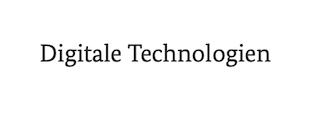CrowdWater
Crowd-based monitoring and forecasting for the sustainable use of rainwater and drinking water
Water scarcity is a global problem that is now also becoming a growing issue in Germany. Periods of drought are increasing, underscoring the importance of sustainable water usage. At the same time, the consumption of drinking water and industrial water is also increasing, which poses new challenges for ensuring the quality of drinking water for the common good. Moreover, outdated water supply infrastructures are putting a strain on the existing system due to leaks and burst pipes, resulting in a considerable loss of water.
The intention behind the CrowdWater project is to leverage cutting-edge digital technologies to improve how water is managed as a resource. Its objective is to enable real-time monitoring of water usage and resources in order to identify potential savings for consumers, commercial customers and utilities. A dense, decentralised Internet of Things network is being set up in various test regions for this purpose. It uses sensors and intelligent devices to collect extensive data, which is then transmitted to a central platform. Data is gathered from various sources, including critical infrastructure such as water supply and disposal facilities, along with private data sources such as smart home data and smart water meters. Public data sources such as municipal OpenData sources are also included.
The data that is collected helps present water consumption and usage in a transparent way. It also helps identify alternatives and visualise losses, which in turn helps determine water savings potential. A key component of the project is the development of a regional water data platform. This platform will not only provide the collected sensor data for further smart city applications – it will also enable interfaces for additional data. CrowdWater’s implementation relies on an open-source approach utilising existing standards and solutions. The long-term goal is to make the collected data available as open data platforms.
The results of the project will benefit both private households and commercial customers. Companies can use sensors and measuring kits to monitor the efficient use of water in their production processes. End consumers benefit from intelligent water meters, which help them better understand their water consumption and identify potential savings and opportunities for using rainwater. Apps enable water supply companies to improve infrastructure monitoring, detect leaks early on and adapt maintenance and servicing plans accordingly.
Consortium:
- Fraunhofer FIT (Fraunhofer Institute for Applied Information Technology)
- si-automation GmbH
- Troisdorf municipal utilities
- Biesenthal Wasserzähler GmbH
- City of Hennef
- Association of Municipal Utilities Kirchen (Sieg)
- Recommend this page:
- Print view
